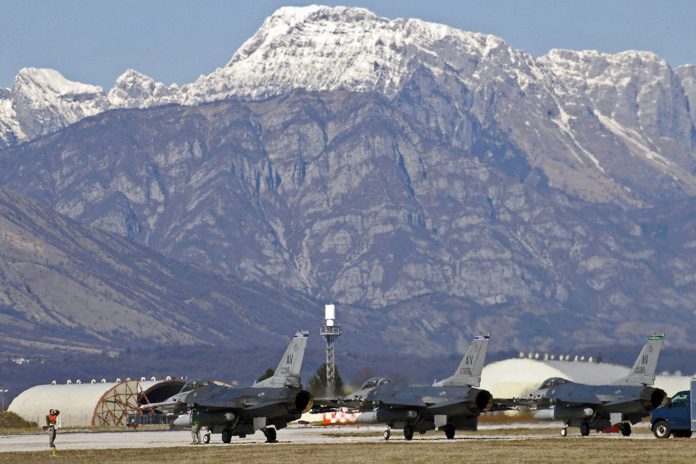by EH
In a move aimed at improving financial transparency, the U.S. government has temporarily suspended the use of credit cards by civilian employees at American military bases across Italy including the Aviano base in Friuli Venezia Giulia region. The suspension will last for 30 days, according to an official memo.
The decision, which affects civilian procurement staff at bases such as Aviano, Vicenza, and Camp Darby, is part of a broader effort to reduce waste and improve the efficiency of federal spending. The freeze has led to the suspension of accounts for minor expenses—such as office supplies and representation costs—that are typically managed at the discretion of the cardholder, without the need for formal procurement procedures.
At Aviano, the freeze applies exclusively to civilian employees, impacting approximately sixty staff members across various procurement offices. Similar communications were sent to civilian employees in the procurement offices at the Ederle and Del Din bases in Vicenza. U.S. civilian employees at Camp Darby, located between Pisa and Livorno, are also affected by the measure.
The freeze is part of a larger cost-saving initiative, which officials suggest is intended to identify and eliminate unnecessary expenditures. The initiative follows the recent rollout of a new centralized technological system designed to track every payment made by the U.S. military in Italy.
The suspension is expected to provide a clearer picture of smaller expenses at individual bases and could potentially lead to broader reductions in the number of credit cards issued to employees. The current freeze is described as a temporary measure pending further evaluation of the system’s efficiency.
However, the move has raised concerns among labor unions representing Italian civilian employees at U.S. military installations. In formal letters submitted to the U.S. government, unions have requested clarification on the long-term impact of the freeze on Italian workers, who are governed by the Italian national labor contract.
The unions have expressed concern that the freeze could be a precursor to a broader reduction in workforce or a shift in job responsibilities. They also highlighted that the new requirement for employees to submit weekly activity reports, imposed by Elon Musk’s efficiency department, is not typically required by the Italian labor contract.
In a related development, on his platform, X, Musk, who heads the U.S. government’s Department of Efficiency, recently announced the deactivation of 146,000 government credit cards belonging to 16 U.S. agencies, citing their underuse or irrelevance.
The current freeze has not extended to military personnel, who continue to have access to government-issued credit cards. The decision to target civilian employees is seen as part of a broader “spending review” aimed at reducing waste across the U.S. military’s operations in Italy.
The freeze is expected to last through March, with further evaluations to determine its effectiveness in curbing unnecessary expenditures.





























